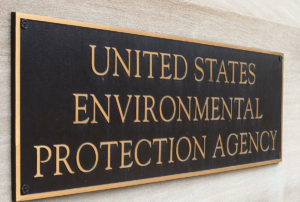 The Environmental Protection Agency (EPA) has published its proposed rule to establish required Renewable Fuel Standard (RFS) volumes and percentage standards for 2023, 2024, and 2025, as well as to propose a series of important modifications to strengthen and expand the RFS program.
The Environmental Protection Agency (EPA) has published its proposed rule to establish required Renewable Fuel Standard (RFS) volumes and percentage standards for 2023, 2024, and 2025, as well as to propose a series of important modifications to strengthen and expand the RFS program.
The proposal sets next year’s (2023) total RFS requirement at 20.82 billion gallons, including 5.82 billion in advanced biofuels and 15 billion from conventional renewable fuels like corn ethanol. In addition, EPA proposes to add a supplemental volume of 250 million gallons on top of the 2023 standards to address a 2017 D.C. Circuit Court decision. The total RFS volume proposed for 2024 is 21.87 billion gallons, with 6.62 billion advanced and 15.25 billion conventional; and for 2025, EPA increases the total volume to 22.68 billion gallons, 7.43 billion of advanced biofuel and 15.25 billion of conventional renewable fuel.
Renewable Fuels Association president and CEO Geoff Cooper reacted to the proposal:
“EPA’s proposed rule solidifies a role for the Renewable Fuel Standard in future efforts to reduce carbon emissions and enhance our nation’s energy security. Once finalized, this rule will significantly accelerate growth and investment in the low-carbon renewable fuels that will help decarbonize our nation’s transportation sector, extend domestic fuel supplies, and bolster the rural economy. By including three years’ worth of RFS volumes, EPA’s proposed rule will finally provide certainty and stability for the entire supply chain. EPA Administrator Michael Regan put the RFS program back on track with the 2022 volume obligations, and today’s proposal builds upon that solid foundation. RFA thanks Administrator Regan and the Biden administration for continuing to make good on their commitment to grow the marketplace for lower-carbon, lower-cost renewable fuels.”
American Coalition for Ethanol (ACE) CEO Brian Jennings issued the following reaction:
“This proposed rule is a critical opportunity for EPA to leverage the greenhouse gas reducing benefits of increasing biofuel blending targets by getting the RFS back on track, and we’re pleased the Agency is taking steps in the right direction by setting conventional biofuel blending at 15 billion gallons or more for 2023 through 2025 on paper, in addition to including the 250 million gallons of supplemental volume to carry out the 2017 DC Circuit Court order. Multi-year targets help provide clarity the market needs to lean into climate benefiting transportation fuels such as ethanol. The Inflation Reduction Act is poised to boost investments in clean fuel technologies that support the Agency increasing the use of clean fuels like ethanol through RFS targets moving forward.”
EPA will hold a virtual public hearing by Zoom on January 10, 2023, for the proposed rule. An additional session will be held on January 11, 2023, if necessary, to accommodate the number of testifiers that sign-up to testify. There will be no in-person hearing.

